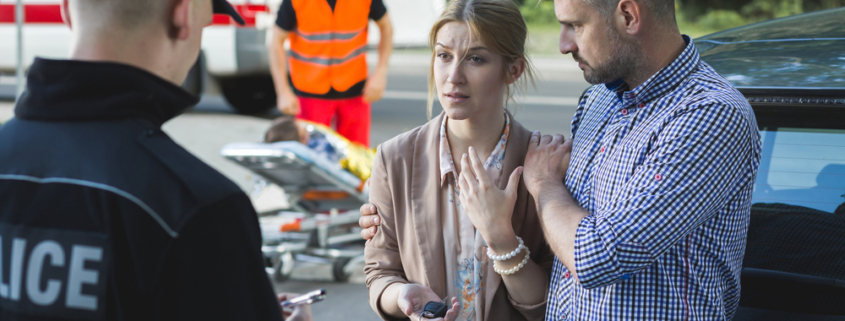Common Causes of Roundabout Auto Accidents
Roundabout intersections have been commonplace in Europe and many other parts of the world for several decades, but the first one to be constructed in the United States was in Summerlin, Nevada in 1990. Since then, thousands of roundabouts have popped up all across North America, with many more being built every year.
The reason that government planners are installing so many roundabouts is that they believe these types of intersections can help reduce the number of auto accidents. In fact, the National Highway Transportation Safety Administration (NHTSA) claims that roundabout intersections can reduce the number of serious accidents by as much as 80%. But unfortunately, these statistics may not be telling us the whole story.
Although certain dangers are reduced by using a roundabout intersection (e.g., lower speeds, eased congestion, increased visibility, reduced blind spots, etc.), roundabouts pose other hazards that can make it more likely for a negligent driver to cause a crash. Add to this the fact that motorists in many parts of North America are not very familiar with this type of intersection, and they may not fully understand how to safely navigate them.
If you or a loved one suffered an injury in a roundabout accident that was caused by someone else’s negligence, it is important to speak with an experienced auto accident attorney to discuss your legal rights and options. If the accident occurred in Alabama, M. Adam Jones & Associates is here to help! Call us today at 334-699-5599 to speak with a member of our legal team.
Common Causes of Roundabout Crashes
Accidents inside roundabouts happen mainly because of either confusion about the rules or aggressive/reckless driving. The second reason is often related to frustration over the unfamiliarity with this type of intersection and/or the general feeling that they should not have to adapt their driving habits to navigate through a roundabout.
Here are some of the common reasons that roundabout crashes occur:
- Failure to yield: One of the primary sources of confusion in roundabouts is over which car is supposed to go first. When a vehicle enters a roundabout, they are supposed to yield to vehicles coming from their left. When a car does not yield as it should, it could collide with an oncoming car.
- Speeding: As we talked about earlier, roundabouts are designed so that traffic will slow down. But not all motorists respect the need to go through these intersections at a lower speed – especially if they are in a hurry.
- Stopping abruptly: Motorists need to understand that roundabouts are circular roadways with no stop signs. This is supposed to create a smooth traffic flow, but that flow can be severely disrupted if a vehicle comes to a full stop. When this happens, rear-end crashes are more likely to occur.
- Unsafe lane changes: In multi-lane roundabouts, drivers often become confused about which lane they are supposed to be in. Oftentimes, they realize at the last minute that they need to switch lanes in order to exit the circle. But making an abrupt lane change can easily result in a sideswipe collision. The right thing to do in this situation is to go around the circle again so there is enough time to safely change lanes before exiting.
Roundabout intersections also pose some unique hazards for pedestrians. In particular, the failure of drivers to yield to pedestrians could cause a crash that results in serious injuries.
Multi-lane roundabouts add another variable that pedestrians have to watch out for. When crossing two lanes of traffic, one vehicle might yield for them while the other vehicle does not. This could cause a pedestrian to become trapped in the middle of the road, which can be especially hazardous for children, the elderly, and disabled individuals who are trying to safely cross.
Contact Our Seasoned Alabama Auto Accident Attorneys
Roundabouts are supposed to make our roadways safer, but as more and more of them are constructed, many states are finding that there are other hazards associated with these types of intersections. If you or someone close to you got hurt in a roundabout crash that was someone else’s fault, contact M. Adam Jones & Associates for your free, no-obligation consultation and case assessment. We are ready to go to work for you!




Leave a Reply
Want to join the discussion?Feel free to contribute!